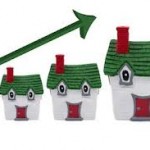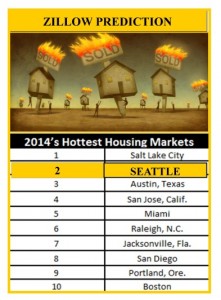 Removing the Must Appraise Clause.
Removing the Must Appraise Clause.
BEFORE you as a buyer of a home agree to “remove the must appraise clause” you need to know that means more cash from you the buyer of an undetermined amount. You also need to know the Finance Contingency does not usually cover not having enough Cash to Close.
Cash bridges the gap between Appraised Value and Sold Price in a Housing Recovery. 2012 not so much. Early 2013 we are seeing “remove must appraise clause” as a condition of acceptance in multiple offers more so than last year. I did see a few last year. Mostly flip houses with a huge change in price from “bought at foreclosure” to 3 months later “sold as flipped house” at almost twice the price as the flipper just paid for it.
This year removing the “must appraise clause” in most all upwardly mobile neighborhoods has become a given.
Sellers are not necessarily choosing highest offer in multiple offers, unless that highest offer also is all cash with no must appraise clause OR the buyer is willing to fund the appreciation with cash.
Because this is so very common right now, and will continue to be so through at least this season into August, people need to know what that means.
LENDERS are not supposed to Fund a Housing Recovery.
THAT is WHY we had a Real Estate “Bubble”.
Lenders bridging the gap between Appraised Value based on “comps” and what a buyer is willing to pay for a house, is a lot of stale air…a bubble. Appreciation fueled by cash from the home buyer is a more stable and historically common form of funding home price appreciation.
Agents get mad when a house doesn’t appraise. That’s just crazy thinking. Let’s take a look at an example as to why that is. Let’s assume the homes are equal in all ways in the example below.
Asking Price – $500,000.00
Last home sold in neighborhood – $485,000
House before that sold – $470,000
House before that sold – $460,000
$500,000 Asking Price house goes into multiple offers and sells at $515,000.
Buyer is putting 20% down. 20% down of WHAT? Buyer thinks he is putting down 20% down of the Purchase Price. BUT the lender says they will fund 80% of Appraised Value or Purchase Price…whichever is LESS.
Very important to understand that your 20% down plus The Lender’s 80% does not equal 100% of the Purchase Price when the market is rising.
If the house appraises at $475,000 in the example above, and the Purchase Price is $515,000, then the lender will loan 80% of $475,000 or $380,000. The buyer’s 20% of the purchase price is $103,000.
$380,000 80% of Appraised Value + $103,000 20% of Purchase Price equals $483,000 and not $515,000. The GAP is $32,000. That means the buyer has to bring $135,000 downpayment to the table vs $103,000. He needs to bring 20% of the purchase price PLUS the difference between 80% of appraised value and his 20% of Purchase Price.
That $$$ difference between what the buyer intended to pay as “20% down of $515,000” and the 80% of Appraised Value that the Lender is willing to lend IS “The Housing Recovery”
That “Housing Recovery” needs to be fueled with an additional cash infusion by the buyer of the home, NOT additional loaned funds as part of the mortgage.
People are asking if this is another “Housing Bubble”. All Market Appreciation does not create a “bubble”. Appreciation fueled by lenders is a bubble. Appreciation fueled with hard cash dollars from the buyer is market appreciation. BOTH can be lost when the market goes down.
No one can tell you what prices will be in 5 years or 10 years or 15 years when it is time for you to move on and sell your house. The only issue is IF the market at the time you sell creates a negative result between what you paid and what you sell for, is that lost money your money or the bank’s money?
In the future, based on cash fueling the recovery vs lenders fueling the recovery, the negative result will not create short sales and foreclosures to the same degree that it did after “The Bubble Years”.
Appraisers can take the comps and deduct from the result if they want to cover the lenders better. They can STICK WITH the actual comps. They can be instructed to add x% for a rising market. In the Bubble Years they added x% for a rising market PER HOUSE vs PER YEAR! That is where they went terribly wrong. Instead of adding 5% for a year…they added 5% to every house! Consequently 6 sales in 4 months created appreciation of 6 times 5% or 30% increase in 4 months. THAT was “The Bubble”.
Yes buyers are ticked off when they have to pay more than Appraised Value with cash infusion. BUT historically that is the ONLY way for a market to appreciate…without creating a new Housing Bubble.
Lenders should not fund appreciation of the Housing Market. Lenders should not stretch to “The Sky’s the Limit” appraisals and loans. Hopefully that is a lesson learned in The Bubble Years that will not repeat itself moving forward.
BEFORE in the heat of multiple offers you say YES! to removing the must appraise clause or Bridging the GAP between 80% of Appraised Value and your 20% down, KNOW what that means. It means you need more money…or be willing to lose your Earnest Money if you don’t have enough to bridge that gap.
How much more money do you need? No one knows…until the appraisal comes in. You DON’T know that number on the day you decide to win in multiple offers, by pulling that “must appraise” clause.
BUYER BEWARE time.
 there really isn’t one.
there really isn’t one.
